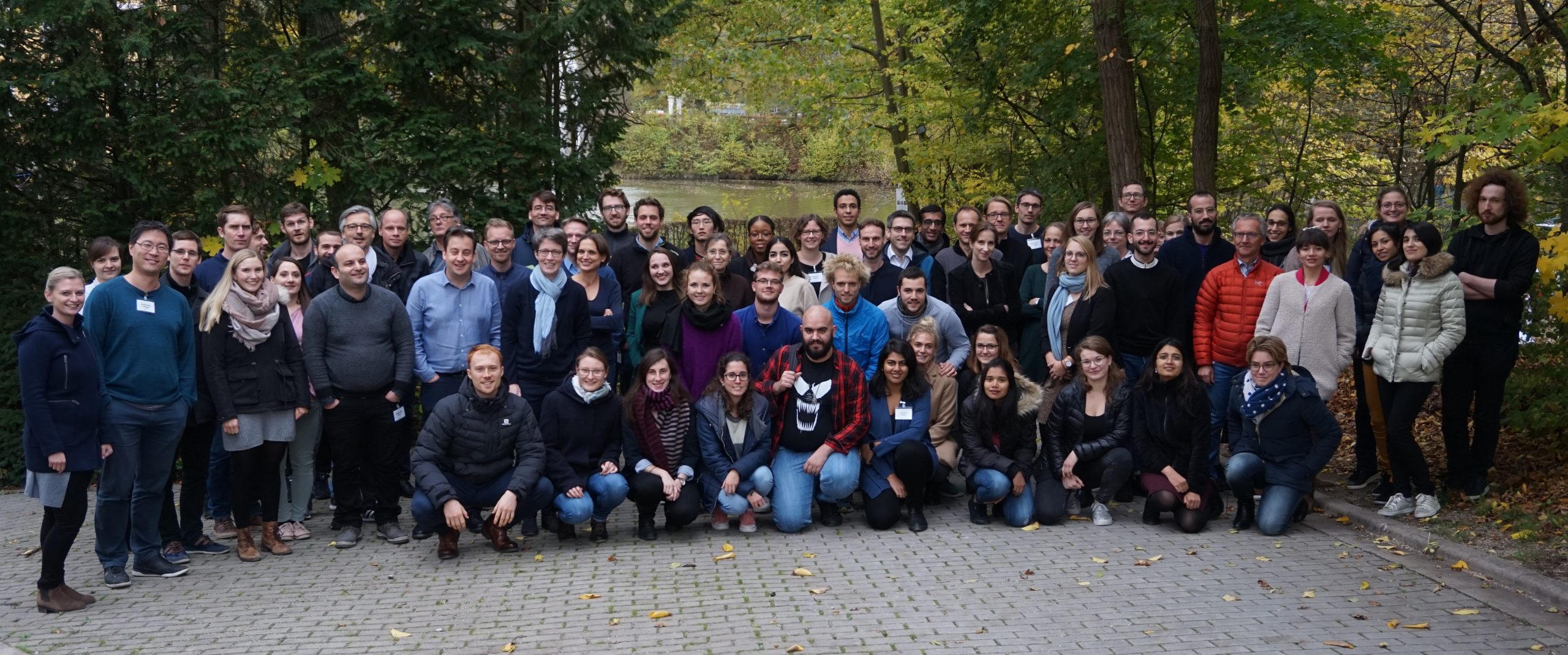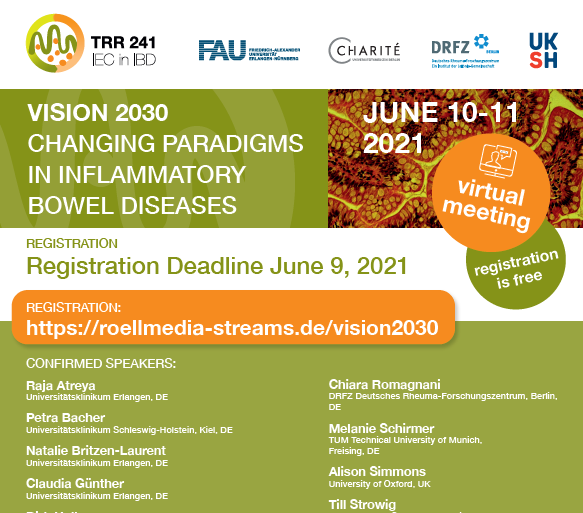Collaborative Research Center "Immune-Epithelial Communication in Inflammatory Bowel Diseases" (TRR241)
The TRR241 is a joint research initiative of researchers in Erlangen, Berlin, Kiel and Innsbruck supported by the German Research Foundation (DFG). The TRR241 aims to better understand the molecular and cellular processes that lead to the development of Inflammatory Bowel Diseases (Crohn’s disease and ulcerative colitis), chronic relapsing inflammatory diseases of the gastrointestinal tract.
The driving hypothesis of our initiative is that a dysregulated signal exchange between the gut epithelium and immune cells and the consequences thereof are key drivers in the pathogenesis of IBD and we are confident that our specialized and multi-modal approaches to investigate these processes will give rise to unique and innovative therapeutic strategies to counter IBD.
Our research network brings together a group of highly experienced gastroenterologists, immunologists and cellular and molecular biologists with expertise in experimental, translational and clinically-oriented research to ensure the realization of our aims. With the establishment of TRR241, we not only join forces between the current strongholds of IBD research in Germany, but also link two of the largest German IBD outpatient clinics (Erlangen, Berlin) with more than 8000 IBD patient contacts per year, thereby establishing an IBD network with outstanding fundamental and translational structures.

The research program of our consortium has been designed to advance not only basic concepts of IBD development, but also to provide an outstanding platform for translational studies and pre-clinical and clinical testing. Our research efforts are built on a solid fundament of state-of-the-art technology platforms, such as in vivo imaging, next generation sequencing, intestinal organoid technology and molecular imaging.
News and Topics

Newsletter 07/2021
Newsletter 07/2021 Here you can find our Newsletter from July 2021: TRR241 Newsletter 07.2021

iRTG Student Retreat 2020
iRTG Student Retreat 2020 The second student retreat was held online via Zoom from June 3-5. The retreat was organized by the PhD students themselves

Vision 2030: Changing Paradigms in Inflammatory Bowel Diseases, June 10 – 11, 2021
International Symposium Vision 2030: Changing Paradigms in Inflammatory Bowel Diseases June 10-11, 2021 Unfortunately, our international symposium could only take place virtually due to the
